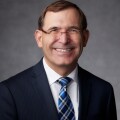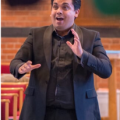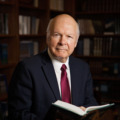
Oceans and time separate many Latter-day Saints from Joseph Smith. And yet, many Saints from around the world have testimonies of this 19th-century American prophet. How is this possible? How have so many Saints of so many different time periods, ethnicities, cultures, and backgrounds, felt connected to Joseph Smith? In this episode, Heidi asks her friends from different continents and countries how they reached across oceans to gain their testimonies of the prophet of the Restoration.
Episode References:
Joseph and Emma’s son, Alvin’s grave: Alvin Smith grave, Harmony, Pennsylvania
The book Rick Turley wrote about Joseph Smith’s life for young readers: Stories from the Life of Joseph Smith
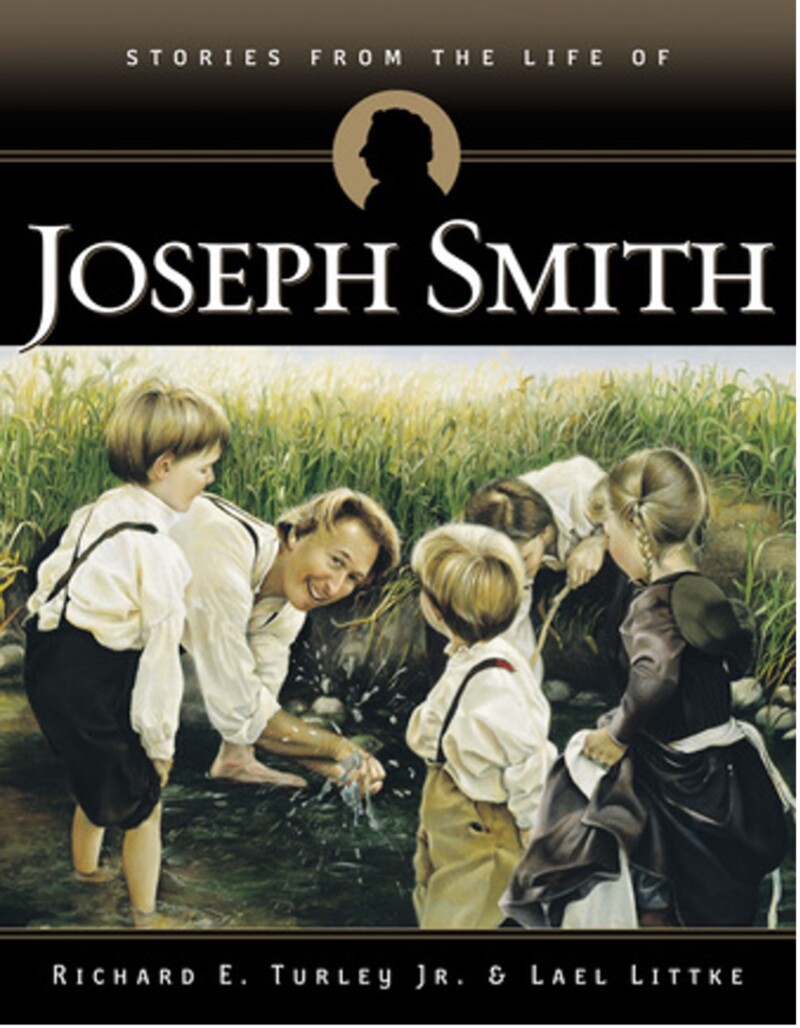
Rick Turley’s book Joseph Smith: Teenage Prophet
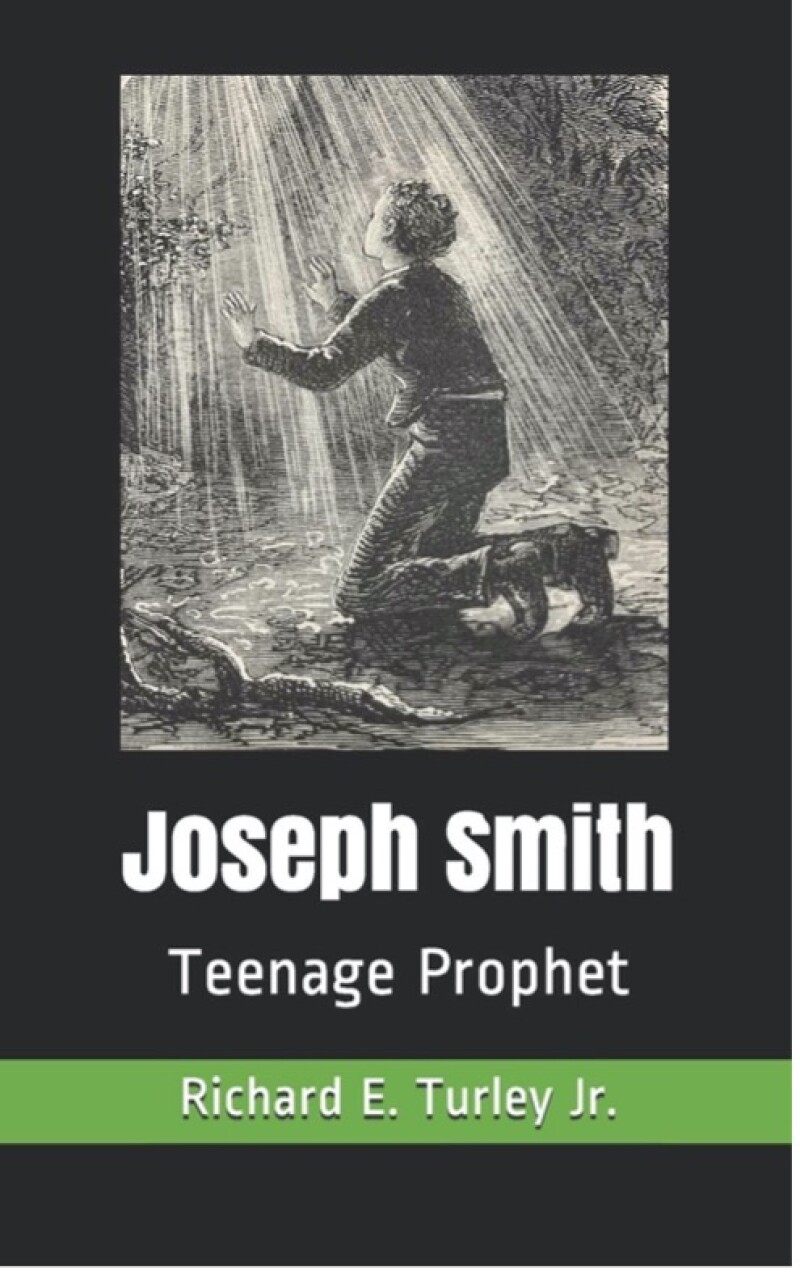
Quotes:
“I know it seems difficult. I know you get discouraged at times. I know you wonder why you are attending school at all. But keep on. Keep on hammering away. Keep on learning. You will never regret learning—neither in this life, nor in the world to come. Indeed, you will treasure forever what you learn and what you learn about how to keep on learning” (President Henry B. Eyring, “President Eyring Shares 4 Ways to Overcome Educational Struggles,” November 2018).
“Have the Presbyterians any truth? Yes. Have the Baptists, Methodists &c. any truth? Yes, they all have a little truth mixed with error. We should gather all the good and true principles in the world and treasure them up or we shall not come out pure Mormons” ("History, 1838–1856, volume E-1 [1 July 1843–30 April 1844]," p. 1681, The Joseph Smith Papers).
“Perhaps the Lord needs such men on the outside of His Church to help it along,” said the late Elder Orson F. Whitney of the Quorum of the Twelve. “They are among its auxiliaries, and can do more good for the cause where the Lord has placed them, than anywhere else. … Hence, some are drawn into the fold and receive a testimony of the truth; while others remain unconverted … the beauties and glories of the gospel being veiled temporarily from their view, for a wise purpose. The Lord will open their eyes in His own due time. God is using more than one people for the accomplishment of His great and marvelous work. The Latter-day Saints cannot do it all. It is too vast, too arduous for any one people. … We have no quarrel with the Gentiles. They are our partners in a certain sense.” (Conference Report, April 1928, p. 59) (President Ezra Taft Benson quoting Elder Orson F. Whitney, “Civic Standards for the Faithful Saints,” April 1972).
Mark Lusvardi 0:00
When Moroni came, Moroni said that, "His name would be had for good and evil among all tongues, among all people." Now, when you're in upstate New York in 1823, that's an unbelievable thought that his name could be known across cultures and peoples across the earth.
Fast forward to an experience that I had in Ghana, it I was a few years back, and we were teaching some missionary leaders over there. I remember this one sister missionary, she had on a beautiful dress. And printed on the fabric of the dress were the names and pictures of all the prophets of the Restoration from Joseph Smith up till now. And it was a lovely dress. It was appropriate for the local culture.
But here, pictured right on her shoulder, was the Prophet Joseph Smith's image along with his name. And I thought, "There's fulfillment of this prophecy that Joseph–who probably didn't know where Ghana was–just a couple of 100 years later here, there would be a missionary out teaching the restored gospel, with his very face and name imprinted, so that she was literally wearing the prophets.”
Multiple Speakers 1:19
(Music) The Prophet Joseph. Stand by my servant, Joseph. Joseph. Joseph Smith. Joseph. Brother Joseph. Joseph Smith. Joseph Smith. The Prophet Joseph Smith. Brother Joseph.
Heidi Swinton 1:34
Welcome to Joseph, a Deseret Bookshelf Plus original brought to you by LDS Living. And I'm Heidi Swinton, your host.
Isn't that example from Mark such a fulfillment of prophecy that Joseph's name and Joseph would be known for good and evil around the world? And here he is showing up in Africa on a woman's dress.
But here's my question: how do we reach across the oceans? Or across time? How do we individually connect with Joseph and fill that tie? Is it even possible to have a relationship with someone who's way far back there? We're going to talk about that. We're going to talk about what it's like to find a connection to Joseph Smith, that we hold on to individually.
Today, I've planned another little journey. We're going to hear from people who've asked themselves that very question. And who've come up with some really interesting answers. I'm excited for you to hear what they share. But before we get to that, I want to tell you a little story of my own, about reaching back in time, and how that connection was made for me.
I remember when we went to Harmony, Pennsylvania, a few episodes back and I complained about how I really wanted to go to Kirtland and not to Harmony because what was in Harmony except bushes and trees in a river? Well, all that changed for several reasons when we arrived because the first thing we did was go to the cemetery.
And there in that cemetery is the grave site, of little Alvin Smith, the oldest child of Joseph and Emma. He was born in 1828. And the only lived one day. Now this is at a point when Joseph was translating the Book of Mormon. And when there was so much going on around him, and then here's this tragedy of sorts. They lose this little boy. So Joseph and Emma bury this little boy. And you know, it was so hard for them. I know it was so hard for them because I stood at the grave of my oldest son, who lived only one day. He was a twin. His twin brother, Cameron, lived in a hospital for three months, but he made it. I know what it feels like. I know standing at the grave of my son.
I think Joseph understood that there would be loss in our lives. And he experienced that loss so he could speak with empathy and understanding. And I remember one of the people at the service spoke about a teaching from Joseph Smith that at the time I was not aware of but now has been so important to me. He said that after a child's resurrection, that little child will be raised by its parents, by its mother, to its full stature. And you know, I've held on to that throughout my life. I think Emma probably held on to it, as did Joseph. My husband’s held on to it. I feel connected to Joseph because I know he understands one of the greatest heartaches of my life was burying a child. And I understand something about him in the same way we're connected because we've both put a child to rest for right now, knowing the promise that they'll be with us later.
So that's how I connect to Joseph. But let me take you to my good friend, Ben, a missionary from England. You remember him in an earlier segment where he talked about getting his testimony of Joseph Smith in a parking lot. Now, except in England, they would call it a car park. He grew up in Birmingham. And he had a very different upbringing from Joseph. He didn't work on a farm. He'd never been a laborer. And he comes from a family that is rooted in the Caribbean. So he has all kinds of different experiences from Joseph.
Ben is a person of color. And he's had to deal with a lot of things, including persecution. And he's had to wrap his arms around how the early Church dealt with people of color, how Joseph Smith did. And he's had to make sense for himself in his day today. And yet, he has a testimony of Joseph that he's going to share with you, and how it's made a difference for him. Here's my conversation with Ben.
[Tape Recorder Click]
Ben Gaughran 6:22
Being from England, naturally, created a divide between me and what Joseph Smith experienced. You know, there's a big ocean between us. But not only an ocean of water, but an ocean of cultural differences as well.
My mother moved to England from Trinidad and Tobago in the Caribbean when I think she was around 16. And it was a few years after that the missionaries knocked on her door and she joined the Church. She married my father, sometime later, and my father was not a member of the Church. For our whole life growing up, he wasn't a member of the Church. And so we were kind of raised by a single-parent Church member. Although my dad was very supportive, it wasn't until three or four days before I left for my full-time mission that dad joined the Church. So the exposure of religion in our house what was the LDS faith.
I think I was around 14 years old when church started getting really serious for me. And so I kind of needed to make a choice: was I gonna stick with this or was I not? And I needed to pray and know for myself that the Church was true.
Heidi Swinton 7:42
What's been hard for you in relationship to Joseph Smith?
Ben Gaughran 7:46
One of the things that was hard for me in terms of relating to Joseph Smith, and understanding Joseph Smith's role, was the way that people of color were treated in the early days of the Church. As a person of color myself, this was hard for me. And it's interesting how it became hard for me.
So my grandmother, on my mother's side, emigrated to England from the Caribbean, from Trinidad and Tobago, and she came here on her own with her children. And life in England, when she got there, wasn't easy. There were struggles that immigrants had, and then struggles associated with the fact that she was a person of color. And then the missionaries knocked on her door, and she eventually joined the Church. And then things about the way people of color were treated in the early days of the Church started to come up. And my grandma struggled with those things. And I remember her telling me about some of those struggles that she had when I was a teenager. And it was then that I started to think, "Oh, interesting."
And so I realized that there was a doctrine here that I didn't quite understand, I couldn't reconcile. God is no respecter of persons. And the worth of every soul is great in the sight of God. I cannot reconcile those foundational doctrines with, however, if you are a person of color, you cannot access things the same as someone who is white can. I couldn't reconcile that, you know, how could a loving God have those barriers?
And so I started to study more about it. I started to reflect on it and pray about it and talk to people that I trusted, both people of color and people who were not of color, and understand it more. And through that, through fasting and through prayer, I came to understand that I don't understand everything, but the Lord does. And I can trust in that. And whilst there are still moments in my life where I'm where I think about that and think how unfair it might have been. Those moments are quickly replaced with feelings of–but God loves me. And I know He does. And how things were previously have changed to how things are now.
And when we look at the way that the Church are embracing so many different cultural things, and really reached out to people of all colors and nationalities increase, it's evidence that God loves us all the same. And those two foundational doctrines that I started with, that God is no respecter of persons and the worth of every soul is great, are foundational, regardless of who, what, or where you are.
Heidi Swinton 10:49
Such a clear way to look at it. And such a wrestle in your life, you know, you've been down a tough road. And your mom was pretty adventurous to step out and join the Church like she did at a time when there were still questions in peoples' minds, even though Spencer Kimball had had the revelation that all worthy men could receive the priesthood. Do you see any issues that have lingered with people, that people of color are treated differently in your congregation, or people are surprised that you're a member of the LDS Church?
Ben Gaughran 11:33
So I recently moved to Michigan to attend graduate school. And whilst I was here, well, when I first got here, I became friends, very good friends, with a person of color. And he was surprised when I told him that I was a member of the Church because he thought that I had a lesser social standing in the Church because I was a person of color. Because that's what people know. People who haven't researched or don't really understand the doctrines, or the history of the Church, still see people of color as being a lower-class citizen in the Church, which is absolutely not the case. And when I served as bishop in England, the ward that I was in had people from all over the world. I mean, Heidi, you know, you served a mission in England. So you know that none of our congregations are just purely people from England.
Heidi Swinton 12:33
With umbrellas and tweed coats. No, like that at all.
Ben Gaughran 12:36
No singing Mary Poppins songs, and nothing like that at all.
And so we had in our congregation lots of people who were from African descent, or from other cultures of color. And there were some members of my ward who struggled with that. I won't name names, obviously, but I remember one particular member, who really had a hard time when people of color in the ward were in leadership positions or administered the sacrament.
And, you know, I remember taking that member into the office and just having a chat with them. And saying, "This isn't how the Lord wants it to be. Because the priesthood that that man holds is no different to the priesthood that that white man holds. They are just the same. And the authority and the power, dependent on the way they live in their lives, but the authority and power that they have, is absolutely equal." So I really, I'm kind of intolerable of it because of the experiences I've had, but also because I've come to know that it's not the God's way.
Heidi Swinton 13:52
Yeah. How do you, a man of color growing up in England, relate to a prophet called of God who lives in America? How do you relate to Joseph Smith?
Ben Gaughran 14:06
So it's been interesting to be able to try and relate to the Prophet Joseph as a person of color. And I think one of the ways that I have done that is by initially looking beyond the person and looking instead to the calling. And trying to really relate with the fact that regardless of who he was initially, he was called to be a prophet. And the role of a prophet has been throughout all time. And actually, Moses probably wasn't white. And, I mean, who knows what color Adam was, but Moses and Noah, they probably were not Caucasian men. And they were more likely men of color. And so this idea of a race didn't just start with Joseph Smith, this idea of race started way before that.
So for me, gaining a testimony of the role of a prophet, gaining the testimony of what the Lord uses prophets for was the vehicle by which I can then come to know and love Joseph Smith. He was chosen by God to be the hands by which so many blessings that have come into my life now could come. And so I came to love the Prophet Joseph Smith because I loved that God always chose prophets to bless us. And Joseph was the extraordinary person that was chosen at that time to fill that sacred role.
Heidi Swinton 15:45
Let's talk about characteristics in Joseph that speak to you, person to person. That you look at Joseph and you say, "You know what I like about him, this." What would you say?
Ben Gaughran 15:57
I love so many things about Joseph Smith. And one of the things that just particularly stands out is how he loved being with children, and wasn't afraid to, to have a bit of fun. You know, someone who had just been placed the burden of the world on his shoulder, essentially, was still able to go and be with the people and show that he loved and respected them, whoever they are. So that's definitely one characteristic I am always taken by: his absolute loyalty and commitment to what was true.
Heidi Swinton 16:37
So you look at that loyalty to those around him, and that loyalty probably extends, even that loyalty, obviously, extends to Jesus Christ. How has knowing these things about Joseph, admiring Joseph, how has that drawn you closer to Jesus Christ?
Ben Gaughran 17:00
In times of need, both Joseph and Savior turned to their Father in Heaven. And for Joseph, he also turned to Christ in those times of need. That helps me in my own times of need. I can turn to the Savior and be assured that I'll get a response because he did. And I know that I'm going to get a response that teaches me and continues to teach me that the Savior is always there for me. He was always there for Joseph. And so he's always there for me as well because He loves me. He loves me just the same way that He loves all of us. And the same way that he loves the Prophet Joseph as well.
[Tape Recorder Click]
Heidi Swinton 17:53
Ben has handled things that are tough. He even has handled persecution. And I think we're going to hear some more of that later on of people who've dealt with bullying. Even though he may be different in his experiences from Joseph, he still can connect with him. It's important for us to connect to Joseph, because so much of what we know about Jesus Christ, the scriptures in the Book of Mormon, the Pearl of Great Price, revelations in the Doctrine and Covenants, all of that, that we have that illuminates Jesus Christ in our lives, came through Joseph Smith as the Prophet of the Restoration. So I think we learned that from Ben, and I think we're going to see another side of that for my next guest.
[Tape Recorder Click]
Hanae Yamamoto 18:40
My name is Hanae Yamamoto. I am from Japan. I grew up in Japan. I grew up in the Church. I go to Brigham Young University. My major is piano performance. And I have a little boy named Ray.
Heidi Swinton 19:00
Hanae was one of our missionaries when we were at the visitor center in Hawaii. She's an incredible pianist. She has the most beautiful, lovely hands. She's was one of our sister training leaders, you know, those that help you organize and coordinate everything. She was so good at it. And she did. It was such a soft touch. And I think you're going to feel that as she talks to us about her experience with Joseph, and with Jesus Christ.
How do you feel about Joseph Smith? And tell us why.
Hanae Yamamoto 19:33
I like Joseph Smith. I respect him a lot. He restored the gospel of Jesus Christ. All the currents works were created thanks to him, and temple work is available. Especially baptism for the dead is very significant to me because both sides of my grandparents were not ready to receive the gospel when they were still alive. So thanks to Joseph Smith, we have, I mean, they have a chance to accept the gospel of Jesus Christ and receive the ordinances.
And, hmm, me think. Well, I'm in a Relief Society. So a lot of sisters around me support me and minister to me. It helps me a lot to stay active in Church. He did a lot.
Heidi Swinton 20:35
How did you really come to know in your heart that he was a prophet?
Hanae Yamamoto 20:41
So I knew who Joseph Smith was. And I really did not think that Joseph Smith, American guy, restored the gospel. You know, I really didn't think until you asked me that question. Like, when you think about it, Jesus Christ is a different race too, so far away across from oceans and cultures and time, you know.
I think the Spirit is always the key to know the truth. It does not matter how different the culture or location or time or if you want to know if it's true or not, the Spirit will tell you. In my case, learning about Joseph Smith, in church and at home, made me feel at peace and warm. So that's how I came to love Joseph Smith and Jesus Christ.
Heidi Swinton 21:40
What part does the prophet have in your life today?
Hanae Yamamoto 21:43
Oh, very big. Very big. They inspire me. They strengthen me, can I give you one example?
Heidi Swinton 21:52
I love to hear examples, yes.
Hanae Yamamoto 21:56
So I've been struggling with schoolwork. It's hard. It's very hard being a Japanese (student). I don't write English essays well, very well. It's hard for me to understand English. It's hard to catch up. And I'm actually a mother of a 16-month boy. And actually, one more baby is coming. I'm a wife, right. And I still go to school. It's tough. It's very, very hard to maintain a balance. I got a lot of assignments. And I'm a piano performance major so I need to practice a lot. And I used to take care of my boy like breakfast, lunch, dinner, cleaning, diaper change, playing, bathing, like brushing his teeth. It's very, very hard.
One night, I was, "Oh, maybe I should quit school. Well, my husband is doing his work, he's =studying and then he's about to graduate. I think I'm going to be a housewife, you know? So I don't need a degree." I was so stressed out and overwhelmed by all the assignments in the work that I need to do. But I think it was President Eyring? He gave a talk to college students in Salt Lake. And I was looking through Instagram, and I found his quote saying, "You will never regret what you learn." He shared about his experience in college, how he struggled with his physics. And he thought he should quit school. But now, he testified like how important knowledge is, and how important learning process is. So that quote helped me a lot. Like I felt peace even though I was stressed up still, but I felt like Heavenly Father is trying to tell me that I should keep going. That moment, I was so grateful of prophets.
[Tape Recorder Click]
Heidi Swinton 24:25
There's a quiet confidence, kind of an elegance, in the way Hanae talks about Joseph about Jesus Christ. I loved how she talked about looking beyond Joseph being from America to Joseph being called of God. And so everyone around the world can see Joseph in that light.
Okay, so we've talked to a couple of missionaries. But now we're going to go back to Rick Turley. Yes, we're going there again, because what Rick has to say is pretty important about this whole business of running across borders and boundaries and countries and cultures. He identifies with Joseph in a way that I think is going to be interesting for you to hear. So let's listen to what Rick has to say.
[Tape Recorder Click]
Heidi Swinton 25:13
How did Rick Turley come to have a testimony, a love for Joseph Smith? Was that in your heart long before you had the opportunity to walk into the historian's office and pull that volume off the shelf that was Joseph's journal? Where did it come from for you?
Rick Turley 25:30
I was born to believing parents who taught me the gospel, and taught me about Joseph Smith. But my real love for the Prophet began when I was 15 years old.
[In] 1971, when I turned 15, was also the year that the Church began the consolidated magazines including the New Era. And our stake, where I was living outside of Utah, had a "New Era Bowl," a competition based on the old College Bowl in which the youth in the stake would compete. Most of the teams from the wards were made up of 17 or 18-year-old seniors in high school. I was 15, and much younger than the rest of the participants. But I I loved reading about Joseph Smith so much that I devoured what was in the magazines, essentially memorize them. And so when it came time for the Seminary bowl competition, the other members of the team were willing to allow me on the team because I knew that material cold. And when it came time for the final state competition, I think we won by something like 116 to 20. And from that moment on, I've been obsessed with learning more and more about the Prophet.
So when I went later that year to a conference . . . I went to an explorer conference at BYU and they also had kind of competition, College-Bowl-style competition. And then we moved to Utah just before my junior year, and during my junior year, they had Seminary bowl which was very similar to that. So I participate in that Seminary bowl and was the district champion. And then when I became a senior in high school, I was designated as the Academic Vice President of the Salt Lake Valley North Seminary District Council, which made me responsible for writing all the Seminary bowl questions and judging the competitions for 15 schools in the Salt Lake Valley.
So by the time I graduated from high school, I knew Church history much better than most Church members know it today. And that was the beginning of my deep-seated interest in Joseph Smith and the history of the Church. And it's just that interest is continued to the present day.
Heidi Swinton 27:41
What do you love about him? It's one thing to know everything. But what do you love about Joseph Smith?
Rick Turley 27:48
This may sound easy, but I admire his simple faith. Joseph Smith went to the grove fully believing he would get an answer to his prayer. Joseph Smith knelt in his room when he was 17 fully believing he would get an answer to his prayer. Joseph Smith petitioned the Lord over and over again for answers. Sometimes the Lord told him yes, sometimes the Lord told him no. Sometimes the Lord gave him answers, sometimes the Lord gave him indirect answers. Sometimes the Lord didn't answer him in the way that he wanted. But he was always willing to ask and knew that, somehow or another, he'd get some type of response.
And I admire that simple faith. I admire how that simple faith then led him to revelation. Because many members of the Church today somehow think that when you become a bishop or a Relief Society president or a stake president or a stake Relief Society president or a member of a general board or a general authority or you become a member of the Quorum of the Twelve or a prophet, that somehow or another, something happens to you that creates a far different experience than you ever had at any other time in your life.
When the reality is that the revelatory experience for most of the–most senior people we admire in the Church comes about in the same manner that it comes to a youngster kneeling beside a bed or a teenager petitioning for help. It's the same exact revelatory process. And so I admire his simple faith, and then his willingness to listen to the voice of the Lord. And I admire it, in part because it's something that his life teaches all of us we can do.
Heidi Swinton 29:32
You've done a book stories of Joseph Smith for children. In those accounts, is there one that really resonates with you and also, what prompted you to even choose to write about the stories of Joseph Smith?
Rick Turley 29:46
I was raising six children with my wife, Shirley, at the time. And I wanted my children to begin to understand Joseph Smith the way I understand him. I realized it's a tall order because I've had the opportunity to study him in a way that most people haven't and never will have the opportunity to do, but I at least wanted to give them a taste. So I wrote that book with Lael Littke, a children's writer, so that it would be accessible to children.
And I asked my youngest son at the time to read the manuscript to be certain that it was accessible. And he gave me one of the greatest compliments of my writing career. We were sitting around the dinner table, and the book was published and my wife, Shirley, asked our children, "Have you taken a chance to read the book that dad wrote on Joseph Smith?" And my children, most of them had not at that point. And my youngest son, who had read the manuscript, he looked up from his meal and said, as only a young man can say, really, "Guys, it's not that bad. I read it." And I thought to myself, "You know, from a youngster like that, a young man who's not impressed by very much at all, that was the highest praise." Maybe the highest praise I've ever gotten for anything I've ever written. I love that.
Heidi Swinton 31:00
You know, your children can be your best critics and your worst critics. Yeah, you just kind of hesitate sometimes and think, "Oh, I don't know if I do have them read this."
Rick Turley 31:08
Since there was unsolicited praise, I took it as the highest possible press.
Heidi Swinton 31:12
Absolutely. So in that book, is there an account that sort of speaks to you that you just think about Joseph in that particular story? Could you share a story with us that you really liked? That really said to you, "This is my Joseph Smith."
Rick Turley 31:30
Well, I think his entire life is remarkable. But I in that book, I chose to create a series of chapters that could be read one per night. Such as by a fifth grader reading to himself or herself, or by a parent reading to a child. And among those stories, I describe how Joseph Smith first made it to the Palmyra area, which was being in a sleigh or a wagon with other people, and having a bully, basically, smash him in the face and knock him to the ground. And he was still recovering from a horrible leg surgery that he experienced. And then he got picked up by a stranger and carried in the town. I think it's a story that most people don't know. But that's an account of young Joseph Smith that I thought would appeal to us today because many youth are bullied.
When I was a youth, I had a period of time when I was bullied. I moved from one part of the country to another part. And of course, when you when you move in to a place that has its own culture, and children by that age in life have made their own friends, they had their own their own groups, and so forth. It's difficult as a newcomer to sort of work your way in, and it happens eventually. But in that early period, before you're accepted, there can be some rough moments as people bully you or mistreat you. And so I experienced that. So when I read through Joseph Smith's papers, and I found these instances in which he was bullied not just as an adult, but as a child, I recognize that here was someone who could relate to my experiences because he'd had them himself. Only worse over time, I've never been tarred and feathered.
But I've asked people about tar, I asked a tar expert once, I said, "How hot this tar have to be to become liquid?" And this is a person who, as his career, specialized in tar says, "It's got to be about 400 degrees." And I thought to myself, "Even if it had cooled considerably from the time that it was first heated and put into a tar bucket, it would be burning hot at the time it was applied to the skin." And I thought to myself, "I've never experienced that level of persecution." But to know that Joseph Smith, even as a youngster, was bullied the way that many of us had been bullied when we were young, was enlightening to me. And helped create a bond between him and me.
Heidi Swinton 33:51
You know, I've always identified with Joseph's account of going to the minister and telling him if his experience with that great sense of faith, "This is what happened to me." And being just dismissed and ridiculed by someone that he had respected and that he thought would understand him. You know, there are times when you're pushed aside, or things aren't, you don't receive the interest or the accolades that you think you're going to get. And I've often thought about Joseph very early in his life, having to just stand firm, and be able to say to himself, "I knew it. I knew that God knew it. And I could not deny it." And for a young boy, sometimes to be able to do that is very difficult.
Rick Turley 34:38
But I think it's more difficult than we realize I'm more recently I've published a small book called "Joseph Smith: Teenage Prophet." We like to think of him as a senior member of the Quorum of the Twelve, just about to become the Prophet. And we don't recognize that no, he's just an inexperienced teenager who's got to wrestle his way through a lot of things the way teenagers do today.
Heidi Swinton 34:59
And so he's the president of the of the teachers quorum. And the priests quorum.
Rick Turley 35:03
He's not even that. There's no teachers quorum or priests quorum at the time. He's brand new having to do all of this from scratch. And I think we have to cut him that slack.
That's why I think the Lord says in section 21 of the Doctrine Covenants that we're received the Lord's word through him in all patients of faith. We've got to give him a chance to be a teenager when he's a teenager. A chance to be a 20-something when he's a 20-something. And recognize that he's only a 30-something when he dies.
Heidi Swinton 35:30
We've created this Joseph Smith who spoke with God in the sacred grove, and the heavens opened, and yet he was 14 years old. And I think of my 14-year-old boy standing in the living room, reading from Joseph Smith's history. And it gave perspective to me, I have never forgotten.
Rick Turley 35:53
I think when people take Joseph Smith as a teenage prophet, what they recognize is that, as a teenager, he's struggling with the same concerns that current teenagers are struggling with. He's struggling with the personal challenges that come from his bodily appetites. He's struggling with the personal challenges that come with interacting with parents. He's struggling with the personal challenges that come from interacting with siblings. He's struggling with the personal problems that come with interacting with friends. All those things were part of Joseph Smith's life. And if we see him that way, we relate to him much better. We understand him much better. And we get far more out of what he did.
I also feel it's important when I'm researching a subject that may be challenging to people today to ask myself the simple question, "If you had been Joseph, what would you have done under these circumstances?" And I think, sometimes when we place ourselves in his shoes, it's easier to figure out what he was doing at the time.
Heidi Swinton 36:51
Well, he didn't have the support network. He didn't have the manuals and the handbooks and the red chairs, and that he didn't have anything. He simply had himself and a desire to do what the Lord was asking him to do. Balancing that against growing up.
Rick Turley 37:08
Yes. And I think it's just very important that we accord him the patience and faith that the Lord requires when you're talking about someone who is a first-generation prophet.
Heidi Swinton 37:19
Let's follow up on that idea of a first-generation prophet. It's an interesting description of Joseph Smith. How would you describe the role of a first-generation prophet?
Rick Turley 37:30
Well, Joseph Smith, as the first-generation prophet, was responsible for restoring Christ's Church to the earth in these latter days with all of the laws and ordinances associated with that. He did not have a handbook because he didn't have experienced leaders who mentored him along the way. He had to figure out how to do a lot of things that today we might take for granted.
He didn't have policy guidelines. And so he would try something, and sometimes it works and sometimes it didn't. And over time, he would learn by experience as well as by revelation. And I think it's very important that we recognize that those were the conditions under which he was working. And if you're a new mission president, you served, you know, in a mission. If you're a new mission president or called to open a new area, you've got to figure out all kinds of things that perhaps a mission president and companion and another mission don't have to figure out because it's already been set up for them. And in the process of ramping everything up. You may make some mistakes, but you'll get there eventually with the guidance of the Lord.
[Tape Recorder Click]
Heidi Swinton 38:35
I love that concept of getting there eventually. I appreciate how Rick talked about us getting there, eventually, wherever there is for you. There, for me, is grasping the significance of a young man who did so much that has influenced my life. Has touched my life, that it's created a connection for me across time.
Now, one more thing I loved. Rick, pointing us to the concept of patience and faith, as it relates to Joseph Smith. So if you're having a hard time connecting to Joseph, that's where I think this patience and faith that Rick talked about comes in. I think you really have to have some patience sometimes. And you have to have faith that can move a mountain sometimes, but it begins in little steps. But eventually, with that patience, and that faith, it'll come.
I want to go to Bob Millet now. We've talked to him a couple of times. And I want you to hear how Bob sees Joseph in a little bit of a different light. We're going to shift gears and talk about spirituality. We're going to talk the spirituality of what Joseph wanted for the people at that time. And I want you to think about how that spirituality could be influence in your life right now today?
[Tape Recorder Click]
Heidi Swinton 40:05
What are some of the characteristics of Joseph Smith that speak to you and reinforce in your mind that there's something remarkable about him? Or maybe even just something that you'd want to be as friend?
Bob Millet 40:23
One of the characteristics of Joseph Smith that has always appealed to me, and more now than ever, and that is, he was not possessive about spiritual gifts or spiritual experience. I mean, think about the expression that he made when he said, "God has not really revealed anything to Joseph that he will not make known until the Twelve and even the least Saint may know and understand these things when they're ready to bear them. When the Lord knows they're ready to bear them."
And so it's a matter of Joseph Smith always was constantly trying to get other people involved in spiritual experience. It's not something he hoarded. That was so, that's so refreshing to me. He had a spiritual experience, he wants others to have a spiritual experience.
And if you think about it, with the exception of the First Vision, someone was always with him when a magnificent thing took place. Whether it was Oliver Cowdery or Sidney Rigdon or 12 people sitting in a room all experiencing something great. So he wasn't a mystic in the sense of going off and sitting in the woods by himself, so much. He was pensive, but his spiritual experiences came when he was in the midst of people. And so I've always been impressed with that.
He was a man among the people, obviously, the very fact that everybody called him Brother Joseph. The fact that they'd speak with him as Joseph and they'd use the name almost reverently. He was one of them. He treated persons of other faiths with a surprising respect. I mean, given the language of the First Vision when the Savior talks pretty directly about creeds of other churches, Joseph Smith invites ministers and pastors and priests to speak in Nauvoo. I think he was not nervous about what they might say. I mean, he would always say to them, "Would you mind if I made a comment about that?" "Oh, no, go right ahead." And so I think Joseph Smith was not at all lacking in confidence about what he knew and what he believed.
And as I've dealt with people of other faiths, the people that are the easiest to deal with are people who are secure in their understanding of their faith and their belief. That kind of a person doesn't take offense easily. And in essence, Joseph Smith didn't take offense. He can have someone talk to him about, "I believe it's this this and this." And he will say, "That's very interesting." He would say, "Do the Presbyterians have truth? Of course. Do the Baptists? The Methodists have truth? Of course." He, when he said, "Unless we gather all the truth we can, we will not be true Mormons." He's saying there's truth out there. There's truth to be had.
It reminds me, and he would be an echo of Joseph Smith, Elder Orson F. Whitney made a remarkable statement when he said, "The marvelous work in a wonder foreseen by Isaiah is too great to work for any one people to accomplish. The Latter-day Saints cannot do it by themselves." He went on to say, "There are good men and good women out there who come into the Church through conversion." He said, "Others remain for a wise purpose in the Lord. They can do more good where they are now for the time being than if they were in the Church." That's a breadth of thinking that Brother Whitney has, but that's reflective of Joseph Smith's thought too. He recognized truth and loved truth held by others.
And so I've always been impressed with a way he treated people of other faiths. I think his dogged determinism and determination, his intensity to get the job done. His tenacity, ever facing opposition. There's so many things I admire about him.
[Tape Recorder Click]
Heidi Swinton 44:29
Bob Millet gives us an expansive look at what Joseph was all about. And it was never about Joseph. Joseph thought it was all about God. He saw himself as being one who had spiritual experiences. But he wanted everybody to have those experiences so they would feel about Jesus Christ and their Father in Heaven the way he did.
You know, we've kind of done an around the world in this segment. We've gone from Africa to England, we've been to Japan. I don't know if I told you that Rick is from Texas. But what we've heard from our friends is that Joseph transcends time and place with a singular message. And that message is that Jesus Christ lives and that the love that He has for all of us, that love can embrace us in our moments of need.
I think what Joseph would say if he were here is, "You've spent all this time in these episodes talking about me. But it isn't about me. It's about having spiritual experiences with the Lord Jesus Christ. It's about cracking open the heavens and feeling the power of God come down into your life. It's about living in such a way that the Spirit prompts you to turn here or turn there, or just simply to listen up." I think what Joseph would want us to know, what Joseph would hope our connection would be to him, is that we would gain a love, a respect, a tenderness, and a desire to live in the presence of Jesus Christ and Almighty God. And that we can do that because of the teachings of Joseph Smith that came through him from the heavens above.
We're so excited to have you join us next week because you're going to hear from two of my dearest and closest friends: two women that have taught me so much, and they're going to teach us all. Trust me, you won't want to miss this.
And I have to thank our remarkable guests today. Ben Gaughran, Hanae Yamamoto, Rick Turley, and Bob Millet. If you want to learn more about our guests, be sure to check out our show notes at LDSLiving.com/Joseph.
Joseph is a Bookshelf plus original written and hosted by me, Heidi Swinton, and produced by KaRyn Lay, Erika Free, and Katie Lambert. Our executive producer is Erin Hallstrom. Mix studios did our sound design and mixing for this episode, and every episode. Can't wait for you to join us next time. And remember, as always, stand by Joseph.


